 The Richard E. Bellman Control Heritage Award
The Richard E. Bellman Control Heritage Award The Richard E. Bellman Control Heritage Award
The Richard E. Bellman Control Heritage AwardThe award is given for distinguished career contributions to the theory or applications of automatic control. The Bellman Control Heritage Award is the highest recognition of professional achievement for U.S. control systems engineers and scientists. Richard E. Bellman, for whom the award is named, was an applied mathematician who pioneered the development of system theory as an academic discipline in the 1950s and 1960s. His accomplishments are described in IEEE Transactions on Automatic Control, 1984. The Bellman Award is unique among the AACC awards in that it is made for lifetime contributions to control and systems engineering. Such contributions may cover a range of technical areas or may have been put into practice in several different fields. The winner of the Bellman Award usually has been involved with the interaction of control or system theory with other scientific disciplines, with the engineering profession, and/or with the implications of controls for society at large.
Awarded to Michael Athans for a distinguished career in automatic control as a leader and champion of innovative research, as a contributor to fundamental knowledge in optimal, adaptive, robust, decentralized and distributed control, and as a mentor to his students.
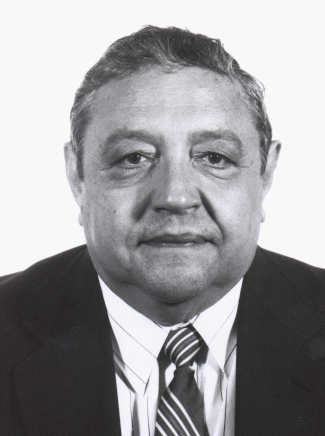
Michael Athans is a Professor in Electrical Engineering and
Computer Sciences at the Massachusetts Institute of Technology. He
received his BSEE, MSEE and Ph.D. from the University of California at
Berkeley. Before joining MIT he was employed as a member of the
technical staff at the MIT Lincoln Laboratory, Lexington, Mass., where he
conducted research in optimal control and estimation theory. During his
tenure at MIT he was also the director of the MIT Laboratory for
Information and Decision Systems (formerly the Electronic Systems
Laboratory) from 1974--1981. In 1978 he co-founded ALPHATECH,
Inc., Burlington, Mass., where he serves as Chairman of the Board of
Directors and Chief Scientific Consultant. He has also consulted for
numerous industrial organizations and government panels.
Dr. Athans is the co-author of Optimal Control (McGraw Hill, 1966), Systems, Networks and Computation: Basic Concepts (McGraw Hill, 1972) and Systems, Networks and Computation : Multivariable Methods (McGraw Hill, 1974). In 1974 he developed 65 color TV lectures and study guides on Modern Control Theory; these are distributed by the MIT Center for Advanced Engineering Study. In 1964 he was the first recipient of the American Automatic Control Council's Donald P. Eckman Award for outstanding contributions to the field of automatic control. In 1969 he was the first recipient of the Frederick E. Terman Award of the American Society for Engineering Education as the outstanding young electrical engineering educator. In 1980 he received the second Education Award of the ACC for his outstanding contributions and distinguished leadership in automatic control education. In 1973 he was elected Fellow of the IEEE and in 1977, Fellow of the AAAS. In 1983 he was elected Distinguished Member of the IEEE Control Systems Society. His most recent award is the 1993 H.W. Bode Prize from the IEEE Control Systems Society, which also included the delivery of the prestigious Bode Plenary Lecture at the 1993 IEEE Conference on Decision and Control.
Dr. Athans has served in numerous committees of IEEE, IFAC, AACC and AAAS; he was president of the IEEE Control Systems Society from 1972 to 1974. He has served as Associate Editor of the IEEE Trans. on Automatic Control, Journal of Dynamic Systems and Control, and Automatica.
 The Donald P. Eckman Award
The Donald P. Eckman AwardThe Donald P. Eckman Award was the first award established by the American Automatic Control Council. It was established in memory of Donald P. Eckman, who made important contributions to control theory and practice in the 1950s and 1960s but died tragically in an automobile accident in 1962. The purpose of this award is to recognize, particularly, important contributions to the control field made by younger researchers. The age limit for the award was originally set at 30 years, but was later extended to 35 years of age (at the time of the award) as the control field grew and matured, in recognition of the difficulty of making leading edge contributions to a more mature field. While the Eckman Award is given for key contributions made prior to the age of 35, the recipient is normally expected to be the type of individual who will remain a leader in the controls profession; he is an example to be emulated by engineers entering the profession.
The Eckman award is often given for key contributions to a single field of research, based on the discovery of a new phenomenon or design method or scientific principle. In practice, the award has usually been given to individuals who make theoretical contributions which have practical implications. However, the development of devices (e.g., as reflected by patents), or significant contributions to engineering practice, might also be recognized.
Awarded to Andrew Packard for contributions to the development of robust multivariable control.

Andrew Packard received his Ph.D. degree in 1987 from the
University of California, Berkeley, in Mechanical Engineering, spending
many valuable summer months at Honeywell HTC (formerly SRC). He
held a post-doctoral position at Caltech in 1988 and was on the faculty of
Electrical and Computer Engineering at UC Santa Barbara in 1989. Since
1990, he has been an Assistant and Associate Professor of Mechanical
Engineering at UC Berkeley.
He was awarded a NSF Presidential Young Investigator Award in 1990. Andy is co-author and co-developer of the mu-Analysis and Synthesis toolbox, and is a recipient of the 1995 UC Berkeley Distinguished Teaching Award, which recognizes individuals for outstanding contributions to teaching. His research interests include Robust Mutlivariable Control, CAD-tools for control analysis, design and implementation, numerical linear algebra, and human powered vehicles.
 The O. Hugo Schuck Best Paper Award
The O. Hugo Schuck Best Paper AwardThe Best Paper Award is given for the best paper presented at the previous year's American Control Conference. In 1987 it was named after O. Hugo Schuck, a pioneer in the practice of flight control design at Honeywell, Inc., and later at NASA. This award was established with the purpose not only of recognizing technical contributions, but also the manner and effectiveness with which they are communicated to the community at the American Control Conference. There are no restrictions on the number, age, or affiliation of authors.
The main source of nominations for the Best Paper Award is submissions by attendees at the conference, who are provided with nomination forms at the registration desk to be used for the following year's conference. Nominations from other sources, following the conference, are also acceptable. Selection criteria include quality of the written and oral presentation, technical contribution, timeliness, and practicality.
Awarded to:
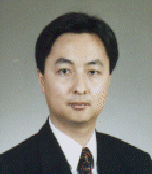
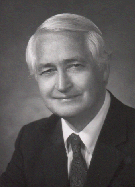
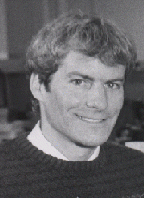
Jangbom Chai, Richard H. Lyon and
Jeffrey H. Lang
for their paper
"Non-Invasive Diagnostics of Motor-Operated Valves"
and to
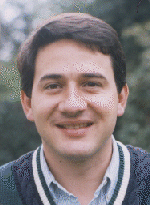
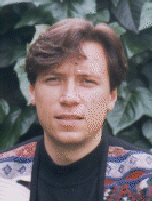
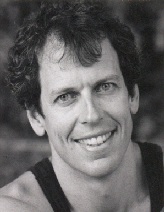
Fernando Paganini, Raffaello D'Andrea and John C. Doyle
for their paper "Behavioral
Approach to Robustness Analysis."
R. H. Lyon is a Professor of Mechanical Engineering at MIT where he also received his Ph.D. in physics. At MIT he leads research in noise propagation and machinery noise and teaches courses in basic and applied acoustics. In 1970 he founded Cambridge Collaborative, Inc., a consulting and research organization. He also founded RH Lyon Corporation in 1976, a product design and development company specializing in sound, vibration, and dynamics. Professor Lyon has written four books, and a large number of technical reports and papers.
Jeffrey H. Lang received the B.S., M.S., and Ph.D. degrees in Electrical Engineering from the Massachusetts Institute of Technology, Cambridge, Massachusetts in 1975, 1977, and 1979, respectively. From 1977 through 1979 he held a Fannie and John Hertz Foundation Fellowship. In 1980, Dr. Lang joined the Department of Electrical Engineering and Computer Science at the Massachusetts Institute of Technology wher he is now Professor of Electrical Engineering. His research involves the analysis, design, and control of physical systems, and currently concentrates on electromechanical systems with application to traditional electric machine systems, micro sensors and actuators, and flexible structures.
Raffaello D'Andrea received his B.A.Sc. degree in Engineering Science, Electrical Engineering option, from the University of Toronto in 1991, and the M.S. degree in Electrical Engineering from the California Institute of Technology in 1992. He is currently completing his Ph.D. in Electrical Engineering at Caltech. From 1988 to 1989, he worked as a hardware design engineer for Bell-Northern Research in Ottawa, Canada. He is a recipient of a Natural Sciences and Engineering Research Council of Canada (NSERC) 1967 award. His research interests include extending the tool of robust control to the designs of systems and the control of instabilities in compression systems.
John Doyle is a Professor of Control and Dynamical Systems and Electrical Engineering at the California Institute of Technology. His areas of research include creating methods that more naturally combine modeling, system ID, analysis, simulation, and system design, with an emphasis on computation and engineering applications. His other interests are modeling and control of acute and chronic response to exercise, and feminist critical theory. He has won two IEEE Transactions Best Paper Awards and an IEEE Baker Prize.
 The AACC Education Award
The AACC Education AwardThe AACC Education Award is given for outstanding contributions to Control Education in any form. These contributions can be from any source and in any media, i.e., electronic, publications, courses, etc. Due to the large number of well qualified nominees, this award is often one of the most difficult to assign.
In evaluating a nominee for the Education Award, it is common for the Award Committee to seek evidence beyond what is provided in the nomination, such as searching the Citation Index, or considering the leadership positions assumed by graduate students, or evaluating key research results of former graduate students. Education is viewed as a process which extends beyond the classroom or the advising functions of a particular faculty member. The Education Award has normally gone to university professors, but there is no formal requirement that nominees must be university professors. Accomplishments of former students may be considered in making the award.
Awarded to J. Boyd Pearson for his commitment to education through continually supporting young talents, producing very high quality students, maintaining an excellent level of research and publications, and improving the quality of our journals.
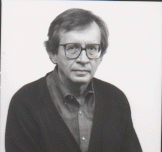
J. Boyd Pearson is a J. S. Abercrombie Professor in Electrical and
Computer Engineering at Rice University. He received the B.S.E.E. and
M.S.E.E. degrees from the University of Arkansas and the Ph.D. degree
from Purdue University in 1962. Since 1965, he has been with Rice
University where he served as Chairman of the Electrical Engineering
Department from 1974 to 1979. He has served in various capacities in the
IEEE Control Systems Society and was Society President in 1984. He
served as President of the American Automatic Control Council in 1992-
1993. In 1985, he received, with Bor-Chin Chang, an IEEE Outstanding
Paper Award from the Control-Systems Society, and in 1989, he and M.
Dahleh received a George S. Axelby Outstanding Paper Award from
the same Society.
 AACC Home Page
AACC Home PageJuly 18, 1996aacc.ece.nwu.edu